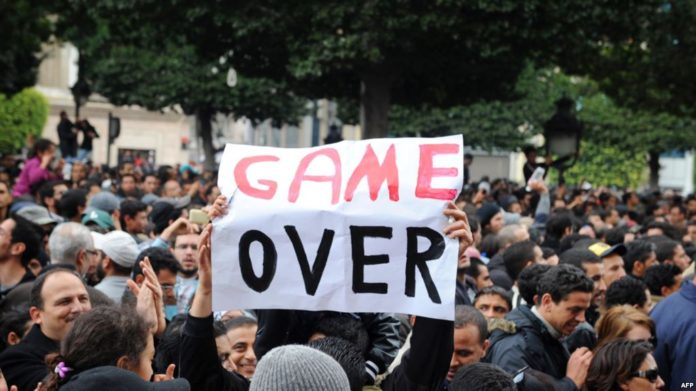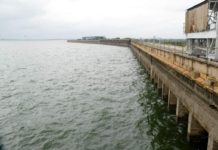Living organisms exist in two ways- they exist independently, as entities separate from each other and interdependently, always relying on one another for something. At times you can almost regard them as an organized set of blocks. When one falls, the rest of them tumble with it. A famine in Africa will result in the death of not only plants but also animals. A nation which has experienced terrorism will not suffer alone, for its countrymen will flee its borders and seek refuge in the neighbor’s borders. In the same way, the rising tide of authoritarian rule in the Middle East and Asia will not only affect the nations themselves but ripple through other countries across the globe.
The Middle East has not been a particularly peaceful region in the past. In fact, the subcontinent has experienced so many wars it’s hard to pick a period when you could remember not hearing of war zones. Some of those wars have been motivated by politics and others by religion. Whatever the reason may be, different countries have felt the impact. Some have hosted refugees as others stood by. Some like the US and Russia has lost citizens to wars in those nations. This is the first illustration of the ripple effect of a dissatisfied Middle East and Asia. Other effects are discussed below.
Authoritarian Rule in the Middle East and Asia, and its effect
Philippines
The Philippines is a war-ravaged nation that has seen a lot of suffering as a direct result of its authoritarian leadership.
President Rodrigo Duterte is the current Philippine leader. In the beginning, the Philippines must have thought that they had a reliable president. Day after day media houses in the world would report how the countries police force was working towards eradicating drug abuse when that is not what was happening at all.
Witnesses who came forward after Duterte had taken power tell a whole different story. President Duterte, they said, had established a police force that was called the Rapid Action Battalion. These officers were the ones in charge of seeking out drug dealers in the nation and taking them into custody. Instead, the Philippine civilians would wake up in the middle of the night to hear screaming. The witnesses reported that the president used his office to get the RAB to conduct extrajudicial killings on his behalf. Many of the citizens of the Middle Eastern nation gave accounts of how they had seen their friends and family members labeled drug traffickers with although they had no affiliations whatsoever. These individuals would then be duly tortured and executed or simply vanish.
The exertion of President Duterte’s influence to quell any challengers to his power had many effects. The first was that numerous Philippines lost their lives, quite needlessly in fact. Duterte’s power was allowed to grow to the point that even rebuke from the international bodies did not seem to faze him in the least. Many citizens fled the Philippines to escape the massacre. Other nations were burdened financially. Countries that hosted Philippine refugees had to care for them, and that cost money. Other nations gave money and other donations through various world bodies such as the UNHCR and the International Red Cross to care for these refugees. Finally, some nations opted to send in military personnel to keep the Philippines safe and to help them get across international borders- that, again, cost money.
Turkey
Turkey is a small Middle Eastern country that is predominantly Muslim. The country is ruled by President Recep Tayyip Erdogan who may not be an authoritarian yet but is well on his way to becoming one.
Earlier this week the government of Turkey announced that it was banning the use of Wikipedia in the country. Wikipedia is an online collection of material that has been gathered from various writers across the world. You can find anything from definitions and origins to the latest on medical research on the site. Now, banning Wikipedia may not seem like such a bad thing if you look at from one standpoint. On the other hand, if you look at the big picture, you might find President Erdogan’s actions worrisome.
Before making the use of the site illegal, Erdogan had had several TV programs wiped off the country’s servers because they were against ‘the country’s Islamic religion.’ Erdogan was not challenged by others in that decision, just as with the Wikipedia ban. This has set a stage where the Asian leader could end up taking unilateral actions that could start wars. Say, like putting into action that attack plan he has been threatening against a Syrian-based militia. Similarly, it shows how little concern the Turkish president pays other religions (the Christian population of Turkey is about two percent). Wars have been started for less, and they disrupt businesses and lead to loss of lives every time.
North Korea
By now most people know of the infamous North Korean President Kim Jong-un. People know of him not as the North Korean leader but as the Asian man who defied all orders to put an end to nuclear weapons. If you have not, the short version of the story is that Kim Jong-un was asked by other world leaders to halt his country’s nuclear weapons program and responded by conducting not one or two but five nuclear warhead tests.
The North Korean leader’s authoritarian attitude could get a lot of people killed. Already, many have been injured as the US responded to the nation’s taunts by planting a defense system in South Korea. Suppose one of the nuke’s North Korea fired ended up in a residential area or blew up in the wrong place like it did in one failed launch. Imagine that devastation.
Other effects are being felt by the North Koreans. Regional blocs have sanctioned the nation, meaning many people in the country are feeling the effects of inflation. Companies that do businesses in the country have had to back off from the nation as they wait for a resolution of the issue. Others like China have had to negotiate deals to avoid the influx of refugees from North Korea. And all these because one man decided he could rule the world.




